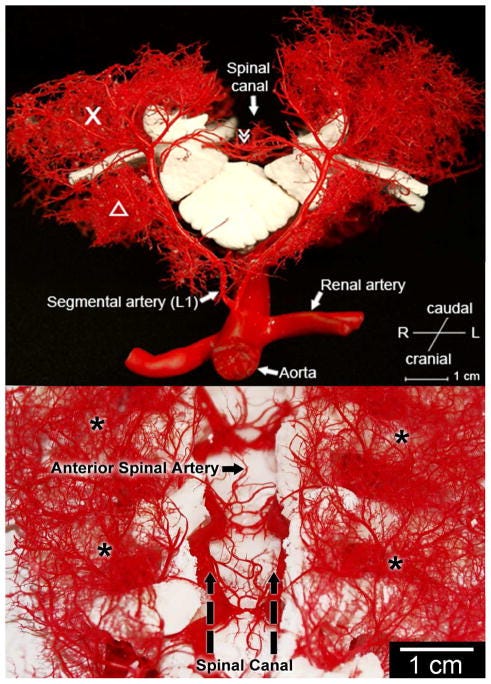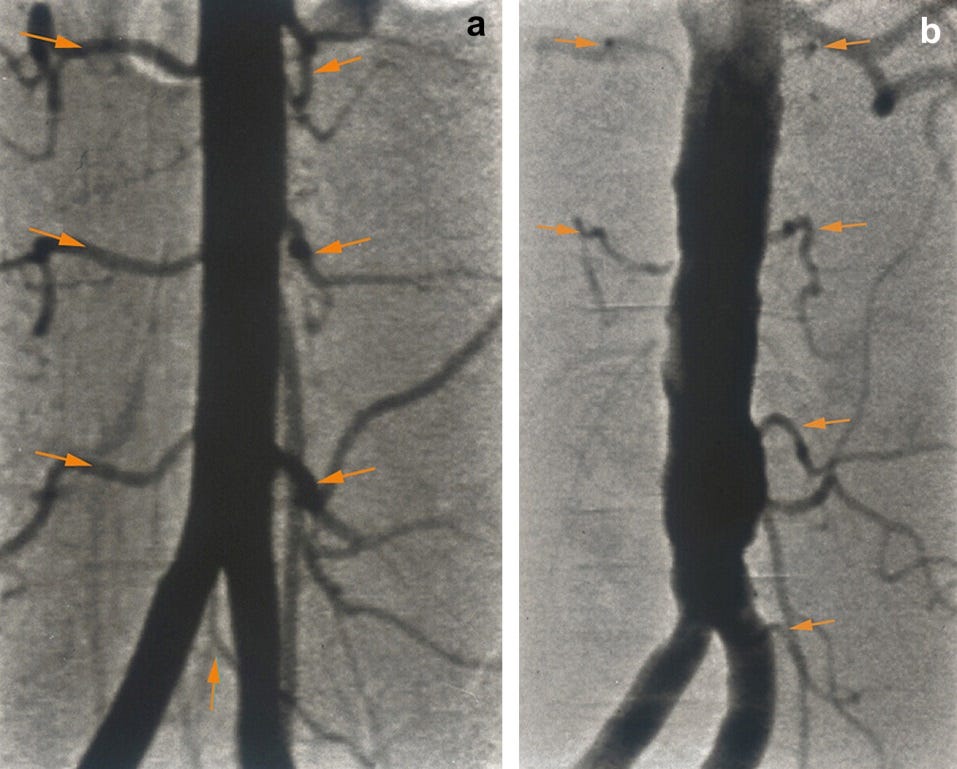An Overlooked Cause of Spinal Degeneration
Spinal degeneration is assumed to be an inevitable part of aging. However, many studies have discovered that there are definite lifestyle factors that accelerate the decay of the spine. While chiropractic care can help to slow this progression by maintaining proper nerve supply, motion, and balance of the spine, the effects are limited.

A sedentary lifestyle is a major factor, as the discs of the spine are dependent on motion and resistance to stay healthy. Another seldom-mentioned cause is what you eat, which ultimately affects the blood supply to the spine. The blood supply to the various tissues and organs of the body is essential. Without adequate blood supply, the cells are starved of oxygen and proper nutrition and slowly wither and die. The blood supply to the spinal column is especially extensive (see Figure 2 below) and vital to the health of the vertebrae, muscles, and nerves.

Just as arteries in the heart and brain can become hardened and filled with plaques (atherosclerosis), so to does the vast arterial network that feeds the vertebral column. The resulting decreased blood supply leads to premature degeneration of the vertebrae, which is usually preceded by deterioration of the discs (as seen in Figure 1).
Numerous studies have shown the link between clogged arteries and spinal degeneration (see Figure 3 below). One study from 2004, for example, found that nearly 80% of patients with back pain had occluded arteries leading to the spine, concluding that "smoking and high blood cholesterol levels were found to have the most consistent associations with degenerative discs and low back pain." While severe degeneration did not necessarily lead to more pain, it was noted that those with higher levels of cholesterol experienced more nerve pain. Another study from 1997 found that those "with one or more occluded/narrowed arteries were 8.5 times more likely to have suffered from chronic low back pain at some point during their life."

In conclusion, this evidence clearly shows that eating healthier and not smoking is not only good for your heart, but for your spine, as well. Furthermore, while studies have shown that degeneration of the spine usually does not cause pain, maintaining the health of the spine is essential for mobility and proper function of the brain and the whole nervous system, which has profound implications for overall health and well-being. For many, eating healthier may seem challenging and unrealistic, but the rewards are many, including a healthy spine, brain, and nervous system, allowing for a productive and enjoyable life.
~ by SJ NANA, DC, DrNana.co.za
The following foods have been proven to clog arteries and should be limited and avoided, as much as possible:
For more information:
The collateral network concept: a reassessment of the anatomy of spinal cord perfusion.
MR Aortography and Serum Cholesterol Levels in Patients With Long-Term Nonspecific Lower Back Pain
Atherosclerosis and Disc Degeneration/Low-Back Pain – A Systematic Review
Prevalence of stenotic changes in arteries supplying the lumbar spine. A postmortem angiographic study on 140 subjectsSystematic Literature Review of Imaging Features of Spinal Degeneration in Asymptomatic Populations
13 Best Foods That Can Increase Your Blood Flow & Circulation You Must Eat
Please see my previous articles relating to this topic:






